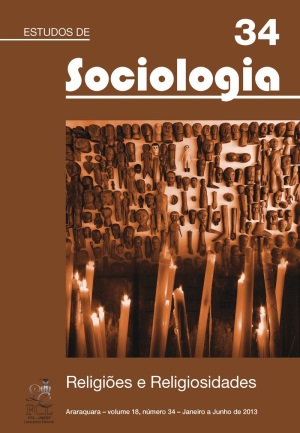Max Weber’s sociology of religion: sanctification of life within political, economic and social orders
Keywords:
Max Weber, Sociology of religion, Legitimation, Social consent,Abstract
The Sociology of Religion by Max Weber is an indispensable place for the study of the central aspects of his thought, aimed at understanding the singularity of modern Western civilization. However, the greatest emphasis is on the relationship between religious affiliation and social stratification, in which Weber presents the world religions as spaces sanctification of daily life of individuals inside political, economic and social orders. Focusing on the economic sphere, our analysis leads to the efficacy of the religious legitimacy, which distributes social consents, associated to the manipulation of the conduct of life, to the construction of intimacy and to the interests of material and ideal of social subjects, breaching the closed circuit of religiosities and tending to the mold of social views of the world, articulated to historical ages, from classes and groups that have been held to stand the relations of domination.Downloads
Download data is not yet available.
Downloads
Published
09/08/2013
How to Cite
GIGANTE, L. C. Max Weber’s sociology of religion: sanctification of life within political, economic and social orders. Estudos de Sociologia, Araraquara, v. 18, n. 34, 2013. Disponível em: https://periodicos.fclar.unesp.br/estudos/article/view/5315. Acesso em: 26 feb. 2026.
Issue
Section
Articles
License

À revista Estudos de Sociologia ficam reservados os direitos autorais pertinentes a todos os artigos nela publicados.
Os artigos publicados e as referências citadas na revista Estudos de Sociologia são de inteira responsabilidade de seus autores.
A Estudos de Socilogia utiliza a licença https://creativecommons.org/licenses/by/4.0/ (CC BY), que permite o compartilhamento do artigo com o reconhecimento da autoria.



